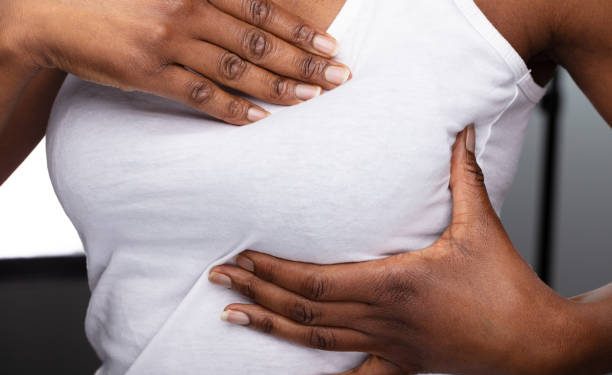Breast cancer has been identified as the most diagnosed cancer among women in the country, with about 5,000 new cases and 2,600 deaths recorded in 2022 alone.
The high mortality associated with the disease in the country is a result of late reporting at health facilities, with many patients presenting only after the disease has advanced.
The acting Director-General of the Ghana Health Service (GHS), Dr Samuel Kaba Akoriyea, made this revelation in a speech read on his behalf at a Breast Health Fair held at Mantse Agbona, Jamestown, last Tuesday.
The event, organised by the GHS in collaboration with partner organisations, was on the theme: “Early detection, lifesaving action,” and aimed to encourage early detection, improve access to screening, and make care pathways more efficient.
The health fair formed part of the activities to mark Breast Cancer Month, commemorated in October every year.
It featured some free health services, including clinical breast examinations, NHIS information & registration desk, health education sessions, men’s corner, counselling and mental health screening, HIV testing, hypertension, diabetes, BMI screening and youth booth.
Community education was provided in local languages to address misconceptions and how to examine the breast.
National reforms
In the speech read by the Director of Public Health at GHS, Dr Franklin Asiedu-Bekoe, the Director-General said that as part of national reforms, clinical breast examination (CBE) has been integrated into routine care at Community-Based Health Planning and Services (CHPS) compounds, health centres, and outpatient departments.
He added that midwives and community health nurses were being trained and equipped to conduct breast examinations and refer suspected cases for further investigation, with referral pathways also standardised between CHPS zones, district hospitals, and regional hospitals to reduce delays.
In addition, he said the service was working with teaching hospitals and regional facilities to increase access to diagnostic services, including ultrasound, biopsy, and pathology testing, with a national cancer registry being developed to track screening, diagnosis stages, treatment timelines, and survival outcomes.
“All these are intended to ensure that the disease is detected early for intervention to reduce its impact,” the DG explained.
Advice to women
The Founder and Executive Director of Salt and Light Ministries, Rev. Dr Joyce Aryee, said breast cancer remained a significant global health concern, with 2.3 million women worldwide diagnosed in 2022 and many cases detected at late stages due to delayed reporting.
She urged women to be proactive about their breast health, as awareness and self-examination were crucial in identifying potential issues before they escalate.
“Your breast is something you must know well.
You must notice changes in your body so that you will go and seek medical attention,” she said.
She also encouraged women to take charge of their health, urging them not to attribute breast cancer to spiritual causes.
“If you’re a person of faith, Jesus has overcome the devil.
The body’s changes can be a reason for so many things,” she said.
Rev. Aryee further offered some practical breast care tips, including regular self-examination to detect changes in breast colour, nipple inversion, or unusual discharge, adding that breast cancer could occur in both younger and older women; hence, men should support breast health practices in the home.
source: Graphic Online














































